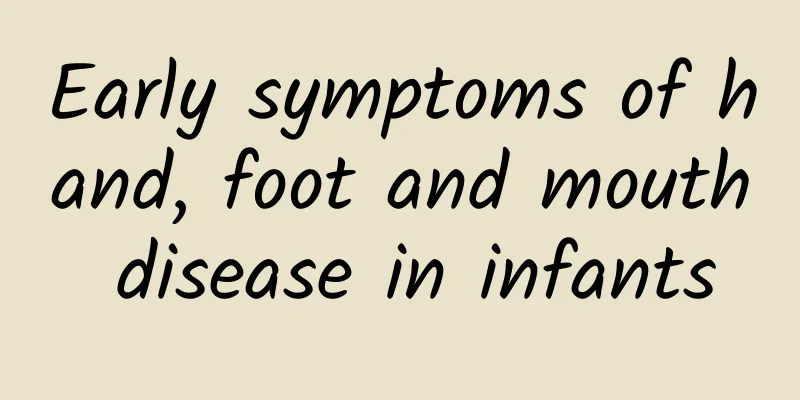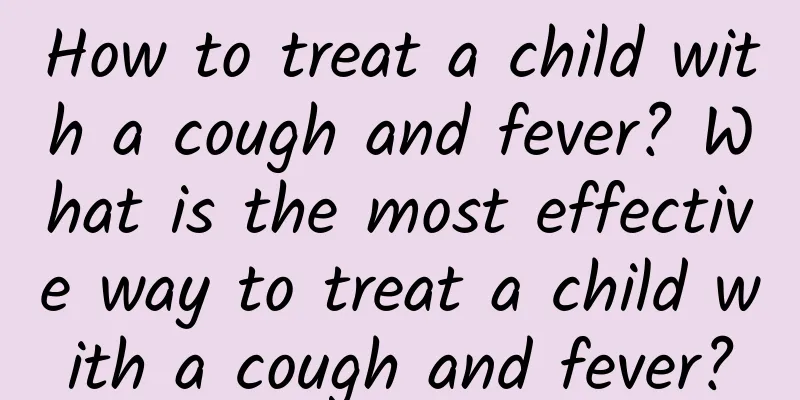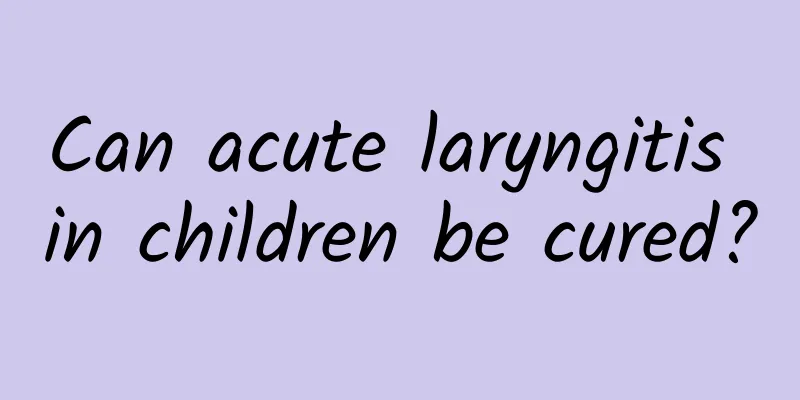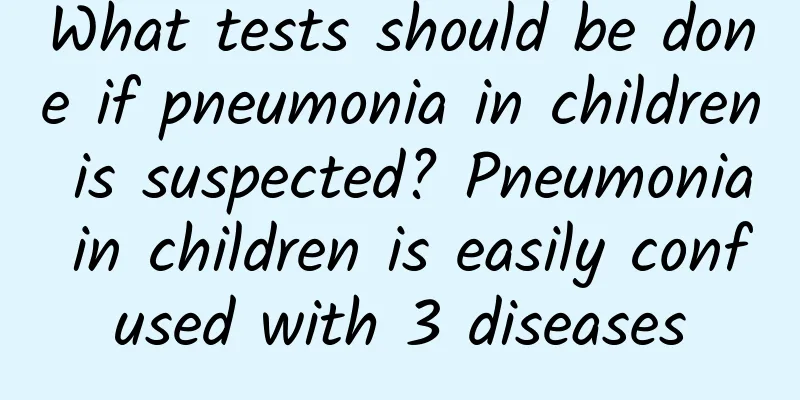Early symptoms of hand, foot and mouth disease in infants

|
The initial symptoms of hand, foot and mouth disease in infants usually include fever, oral ulcers, and rashes on the hands, feet, and buttocks. These symptoms may worry parents, but understanding its early manifestations and care methods can help them cope better. 1. Fever: In the early stages of hand, foot and mouth disease, babies usually have a fever. The temperature may be between 38-39 degrees Celsius, sometimes even higher. The fever usually lasts for 2 to 3 days. Parents can help babies relieve discomfort by wiping with warm water and taking appropriate antipyretic drugs, but they need to be careful to avoid excessive cooling to avoid causing chills. 2. Oral ulcers: Small blisters will appear in the baby's mouth. These blisters will rupture and form ulcers, which will make it difficult for the baby to eat and increase drooling. To relieve the pain, you can provide the baby with warm and cool food and drinks, and avoid sour and spicy foods. Using some oral care products specifically for children can also help relieve the discomfort of ulcers. 3. Rash: The name of hand, foot and mouth disease comes from its typical rash, which is red spots or blisters on the palms, soles, buttocks and around the mouth of infants. These rashes are usually not itchy, but may cause discomfort to infants. Keeping the skin clean and dry and avoiding scratching can reduce the risk of infection. 4. Emotional changes: Babies may become irritable and cry due to physical discomfort. Parents need to comfort them and remain patient. You can comfort babies by gently touching or rocking them to reduce their anxiety. 5. Diet adjustment: During the period of hand, foot and mouth disease, the baby's appetite may decrease. Providing easily digestible and nutritious food, such as rice cereal, vegetable soup, etc., can help the baby replenish the nutrients needed by the body. Avoid hard food to avoid irritating oral ulcers. 6. Maintain hygiene: Hand, foot and mouth disease is contagious. Parents need to pay attention to the baby's personal hygiene, wash hands frequently, and avoid close contact with other children. Using disinfectants to clean toys, tableware and other items can also effectively prevent the spread of the disease. 7. Observe the condition: In the early stages of hand, foot and mouth disease, parents need to closely observe the changes in the baby's condition. If the fever persists, the rash becomes purulent, or the baby shows serious symptoms such as lethargy and shortness of breath, seek medical attention in time. 8. Replenish water: Fever and oral ulcers can cause babies to lose a lot of water, so parents need to pay attention to replenishing enough water for their babies. You can help babies maintain water balance by feeding them warm water, diluted juice, etc. 9. Avoid excessive activity: During the illness, the baby's body is relatively weak. Parents should avoid letting the baby engage in excessive activity and maintain proper rest to help the body recover. By understanding and mastering these early symptoms and care methods, parents can better deal with infant hand, foot and mouth disease and reduce unnecessary worries. Staying calm and providing scientific care are the keys to helping infants recover quickly. |
<<: What are the symptoms of convulsions in children
>>: The impact of hand, foot and mouth disease on children
Recommend
What should I do if my baby has breast milk jaundice?
There is a type of neonatal jaundice called breas...
How to actively regulate acute laryngitis in children
How should we actively adjust children with acute...
Prevention and care of neonatal jaundice
Prevention and care of neonatal jaundice To preve...
What to do if your baby has mycoplasma infection and keeps coughing? Two treatment methods for mycoplasma infection in babies
The first thing to consider when treating mycopla...
How many days does it take for a baby to develop jaundice?
"Neonatal jaundice" refers to the accum...
What should I do if my 6-month-old baby has a cough and runny nose? What are the common causes of a 6-month-old baby's cough and runny nose?
For a 6-month-old baby with a cough and runny nos...
What causes hand, foot and mouth disease?
Hand, foot and mouth disease can occur in any sea...
Causes of low alkaline phosphatase
Low alkaline phosphatase can be confusing to many...
What can children eat to grow taller? Eating more of these 5 foods can help increase children's height
If you want to promote your child's growth, y...
What causes diarrhea in children?
The treatment of pediatric diarrhea needs to be t...
Treatment of post-poliomyelitis syndrome
The treatment of polio is actually not a very com...
What should I do if patients with hand, foot and mouth disease always sweat?
What should we do if patients with hand, foot and...
Can Traditional Chinese Medicine Treat Patent Ductus Arteriosus?
Patent ductus arteriosus is a disease that does e...
Can children with diarrhea take Enteritis Ning?
Children with diarrhea can use Enteritis Ning und...
What to do if your child has a long cough and wheezing
Children with long-term cough and asthma can be t...









